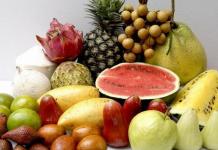Unloading days during pregnancy are allowed as directed by a doctor. He may recommend them if the weight gain is too fast or there is swelling. These problems require elimination, as they are dangerous for their complications: increased blood pressure, the appearance of shortness of breath, disruption of the digestive organs, oxygen starvation of the fetus. A fasting day for pregnant women can replace the intake of certain medications.
Short-term dietary restrictions will not harm the child, especially if they occur while taking vitamin-mineral complexes. In addition, fasting days will help the expectant mother to keep her figure and get in shape faster after childbirth.
Fasting days – periods in which the volume and variety of products are limited in favor of low-calorie ones. They rid the body of toxins and toxins, help to correct weight gain. During short-term food restrictions, metabolism is stimulated and the consumption of fat stores in the body increases.
Doctors prescribe fasting days for pregnant women if there is excess or uneven weight gain, or symptoms appear. This measure helps rid the body of excess fluid. At one time, it takes from 300 to 800 gr.
When arranging fasting days, it is worth following some recommendations:
- You can start them no earlier than 7 months of pregnancy, because before this period, the formation of organs in the fetus occurs. Restrictions in the diet can adversely affect this process.
- It is important to carry out "unloading" systematically, periodically, the best option is 1 time in 7-10 days.
- You should not do fasting days with, because nausea intensifies during hunger.
- Restrictions on food intake should last no more than 1 day, otherwise they may adversely affect the condition of the pregnant woman and the fetus.
- It is important to alternate the various menus of fasting days so that the nutrients entering the body are varied.
- The volume of food with a vegetable menu should be 1.5-2 kg, with protein - 500-700 gr;
- All products prepared for a fasting day are best divided into 6 equal portions in the morning and taken at regular intervals.
- In order for the food to be well absorbed, you need to chew carefully and slowly, without being distracted by extraneous matters.
- You need to drink at least 2 liters of purified water per day. This measure will enhance the cleansing process and restore the mineral-salt balance in the body.
- It is forbidden to take diuretics, bowel cleansing.
- In the absence of contraindications, it is recommended to take a natural choleretic collection, it will help eliminate bile retention in the liver.
- The next day after "unloading" you need to eat moderately, otherwise the result from the previous restrictions will be reduced to zero.
For some women, fasting days during pregnancy are easier to spend at home, when at any time there is an opportunity to relax, lie down. Others tolerate them easier if they are constantly busy: they go shopping, walk, chat with friends. It is worth trying both options and choosing the most suitable one. The main thing on such a day is to avoid intense or prolonged physical exertion.
The harm and benefits of fasting days during pregnancy
Unloading days during pregnancy, if properly organized, facilitate the work of many organs. First of all, they help to restore the digestive organs. The intestines are cleansed, toxins and slags are removed, enzymatic reactions are activated, and the metabolic rate increases. Due to the fact that excess fluid comes out of the body, kidney functions are restored, swelling is noticeably reduced.

Activation of metabolism leads to better breakdown of subcutaneous fat and more active protein synthesis. As a result of regenerative processes in the body and the removal of toxins, the condition of the skin, hair and nails improves.
So that “unloading” for pregnant women does not bring harm, calorie restriction and selection of products should be done only on the recommendation of a doctor. If you do it more than once a week, it will lead to many problems. The child will not receive important substances - vitamins, trace elements, proteins, carbohydrates necessary for normal development.
You should carefully approach the selection of the fasting days menu for pregnant women, as some products can increase or decrease blood pressure, exacerbate chronic diseases. But fasting days, even if all the rules and recommendations are followed, are a kind of shake-up for the body. A change in the usual diet leads to changes in the work of many organs, therefore it is impossible to limit the volume and variety of products for certain diseases of the kidneys, liver, stomach and intestines. Fasting days during pregnancy in the second trimester can be carried out only in extreme cases and strictly according to the doctor's prescription.
Indications and contraindications for fasting days
Unloading days during pregnancy are indicated in the following cases:
- Excess weight in a woman before pregnancy and its uneven rapid increase in the later stages. These conditions can lead to the development of preeclampsia, gestational diabetes, obesity in a child. If the weight of the fetus becomes more than 4-5 kg, the risk of injury during childbirth increases.
- Edema. Fluid accumulates in the interstitial space in almost all organs, reducing their functioning. Fasting days for pregnant women with edema is one of the most effective and safe measures.
- late toxicosis. The consequences of preeclampsia can be premature birth, increased blood pressure. There is an increased risk of intrauterine growth retardation, trauma during childbirth.
Most often, fasting days for pregnant women are recommended in the 3rd trimester. It is during this period that the fetus grows rapidly and creates an additional burden on the organs.
Contraindications for fasting days include:
- Underweight woman before pregnancy.
- Chronic diseases that do not allow restrictions on daily calorie intake and food choices.
- Chronic diseases of internal organs (gastrointestinal tract, heart, blood vessels, etc.).
The doctor always makes a decision on the appointment of fasting days based on data on the state of the pregnant woman, individually. In special cases, an additional consultation with a cardiologist, endocrinologist, therapist is carried out.
Menu for fasting days
Unloading days during pregnancy can be "full" and "light", optimally - alternate menus to diversify the diet. The choice of diet should be approached very carefully and discussed with the doctor, each product affects the body in its own way.
The use of kefir, yogurt, cottage cheese is an ideal unloading day for a pregnant woman to reduce weight, as well as restore the functioning of the vascular system. Cucumbers, watermelons are recommended for hypertension, a tendency to high blood pressure, and kidney diseases. The use of meat is contraindicated in women with chronic diseases of the gastrointestinal tract, heart and blood vessels. Fasting days for pregnant women on buckwheat and rice allow you not to feel hungry for a long time, as cereals contain a large amount of slow carbohydrates.
“Full” fasting days are an option for those who can hardly tolerate dietary restrictions. The daily diet can be from 800 to 1200 kcal.

The main product options for such days:
- Meat. Basis - 400 gr of boiled meat without fat. Ideal for beef or chicken. Optional: unsweetened tea, raw vegetables without additives. Salt cannot be used.
- Fish. Menu: 500 grams of boiled or steamed lean fish, a small amount of steamed or raw vegetables, unsweetened tea, lemon juice for dressing.
- Potato. Boil 1 kg of tubers without salt. Wash down with weak unsweetened tea and low-fat kefir (no more than 400 ml).
- A glass of cereal should be boiled without salt. A fasting day on buckwheat during pregnancy is easier to endure if unsweetened fruits and raw vegetables are added to the porridge in a small amount.
- Rice porrige. Boil a glass of cereal without salt, if desired, before eating, you can add an apple, sweet pepper or carrot to the porridge. Better to use brown rice.
“Light” fasting days require more willpower from a pregnant woman, but they are more effective: the digestive system rests and recovers better, and the body is saturated with vitamins and microelements.
The most popular options are:
- Apples. Base - 2 kg of apples. Fruits can be eaten whole, made into a salad (with the addition of herbs and olive oil), and also baked without additives. It is allowed to drink them with unsweetened green tea. A fasting day on apples during pregnancy prevents iron deficiency in the body, but is contraindicated in gastritis.
- Watermelon. The allowed amount of pulp is 1.5 kg, in between you need to drink a sufficient amount of water (about 2 liters). Since watermelons have a diuretic effect, it is very important to observe the drinking regimen.
- Fruits. The menu consists of 1.5 kg of different fruits, only bananas and grapes are prohibited. They can be eaten whole or prepared in salads with lemon juice dressing.
- Vegetables. 1.5 kg of vegetables can be eaten raw, boiled or steamed. It is allowed to add a little vegetable oil or low-fat sour cream to each serving.
- Juices. Squeeze juice from fresh vegetables and fruits and drink it in small portions throughout the day. The total volume is 1 liter.
- Kefir. In 5-6 doses, drink 1.5 liters of kefir, with a fat content of not more than 1.5%. Kefir can be replaced with fermented baked milk or yogurt. Fasting days for pregnant women on kefir have a beneficial effect on the functioning of the gastrointestinal tract, and prevent constipation.
- Cottage cheese. About 500-600 grams of low-fat cottage cheese should be divided into 6 doses. Take with water or skim milk. A fasting day on cottage cheese during pregnancy is tolerated quite easily, as it gives a feeling of satiety.
Fasting days during pregnancy help get rid of edema, slow down weight gain and restore the functioning of many organs. Positive feedback on the results of their implementation confirms this. But any restrictions and changes in the diet of a pregnant woman should be carried out as directed by a doctor. If there are indications and if properly organized, "unloading" becomes an alternative to some drugs.
When can doctors recommend fasting days for a pregnant woman? As a rule, they are prescribed for overweight or unevenly increasing weight, with swelling, high blood pressure and other manifestations of preeclampsia (a complication of pregnancy characterized by swelling, the appearance of protein in the urine and increased pressure), as well as diabetes and cardiovascular insufficiency. You can arrange unloading days during pregnancy and after plentiful festive feasts, for example, long New Year holidays. This will help maintain optimal weight so that it does not take too long to bounce back after childbirth. Yes, and during delivery, extra pounds will not benefit at all.
When and how often can you arrange fasting days during pregnancy?
Unloading days during pregnancy can be arranged no more than once every 7-10 days. It is believed that fasting days during pregnancy are best arranged on the same day of the week: this is how the body develops a habit and it will be easier to perceive food restrictions. In general, it is recommended to alternate different fasting days, thus ensuring a variety and balance in the diet. And in any case, you must first consult with your doctor about what options for unloading will be most suitable for you and whether you have any contraindications for them.
How to spend unloading days of a pregnant woman?
The entire volume of food that can be eaten during a fasting day should be divided into 5-6 equal portions. It is desirable to eat at regular intervals. At the same time, chew the food carefully, slowly, without rushing: only in this way will it be well absorbed and bring more saturation. If, out of habit, an irresistible feeling of hunger arises, you can additionally drink a glass of low-fat yogurt or kefir. And do not forget to drink enough water during the day: until the 20th week of pregnancy, 2–2.5 liters of water is recommended, from the 21st to the 29th week - up to 1.5 liters, and from the 30th week we limit it a little liquid up to 1.2–1.5 l (you should not use more to avoid edema, to reduce the burden on the kidneys and liver and to prevent preeclampsia).
What are the loading days?
The most useful fasting days for pregnant women are fruit, vegetable and rice compote - these products are rich in vitamins and trace elements, pectin and fiber, contain a sufficient amount of water in their composition.
Unloading days during pregnancy: apple day
Throughout the day, you need to eat 1.5–2 kg of apples, 250–300 g at a time, or make a salad out of them with the addition of olive oil, lemon juice, as well as greens or celery root and parsley. By the way, some apples can be baked for a change (without sugar, and sprinkle with cinnamon to enhance the taste). With early toxicosis, accompanied by nausea and vomiting, apples are best consumed in sour varieties and in the form of mashed potatoes. But if you have increased acidity of gastric juice, then you need to choose only sweet apples. Apple fasting days have a particularly good effect on high blood pressure and kidney diseases, as well as overweight and cardiovascular diseases.
What's the use? Apples, especially if they are their own and grown without the use of agrochemicals, are rich in minerals (manganese, copper, potassium, calcium, iron) and water-soluble vitamins (C, rutin). The beneficial properties of apples are due not only to their vitamin and mineral composition, but also to the fact that they are rich in organic acids (malic, citric), which stimulate the secretion of digestive juices, and also regulate the acid-base state of the body, which can be disturbed during pregnancy.
Apples also contain a powerful antioxidant - chlorogenic acid - which has a beneficial effect on the function of the liver and heart, which experience increased stress while waiting for the baby.
And, perhaps, the most interesting thing about this fruit is the simultaneous content of soluble and insoluble fiber: pectin is found in the pulp, and cellulose is found in the peel of an apple. Cellulose, increasing peristalsis and ensuring the regularity of the stool, helps with constipation, sluggish digestion. And apple pectin has the ability to bind and remove toxins and excess cholesterol from the body, and is also a nutrient medium for beneficial intestinal microflora.
In addition, the skin of an apple is rich in the antioxidant quercetin, which, in combination with vitamin C, neutralizes the harmful effects of free radicals on the body of a pregnant woman.
Advice. The richest in vitamin and mineral composition are domestic antonovka, ranet, white filling, semerenko.
Unloading days during pregnancy: vegetable day

For a fasting day, you need to cook 1.5 kg of vegetables. Zucchini, pumpkin, cucumbers are especially recommended. You can stew pumpkin and zucchini or eat it raw (for example, a salad of zucchini and cucumbers with the addition of unrefined vegetable oil and lemon juice).
What's the use? The pulp of zucchini contains protein, carbohydrates, carotene, vitamins C and group B, pectins, mineral salts of calcium, magnesium and iron. Zucchini is considered a dietary vegetable due to its low content of coarse fiber and low calorie content (only 25 kcal per 100 g). In this regard, this option of unloading is recommended for exacerbations of diseases of the gastrointestinal tract and with a tendency to overweight. Zucchini is rich in potassium and therefore has a diuretic effect and helps the body get rid of excess salt and fluid, preventing the development of edema. Due to the content of pectins, this vegetable helps to eliminate bad cholesterol. Zucchini is rich in lutein, which, acting as an antioxidant, prevents the formation of blood clots, strengthens the immune system and neutralizes the action of free radicals, which are the cause of many serious diseases. In addition, lutein improves eyesight.
The benefits of pumpkin are due to the fact that this vegetable is 90% water and is also rich in potassium. Therefore, like zucchini, it has a diuretic effect and helps prevent edema during pregnancy. Pumpkin, like zucchini, is a light product and does not load the body of a pregnant woman with calories (100 g contains only 22 kcal). In addition, pumpkin contains salts of magnesium, calcium, iodine, zinc, iron, as well as B vitamins, beta-carotene, PP, E, etc. Thanks to fiber, pumpkin helps to cope with constipation and improve the functioning of the gastrointestinal tract.
Cucumber is a unique vegetable, which does not contain any substance that can cause allergies. It belongs to the lightest products (100 g only 15 kcal), so the expectant mother can use it in almost unlimited quantities, without fear of weight gain. Cucumbers contain 95% water, which means that they perfectly cleanse the kidneys. The potassium content makes cucumbers a useful product for pregnant women suffering from diseases of the cardiovascular system.
Adviсe
- When choosing zucchini, give preference to young fruits (when you press your fingernail on the skin, it is easily pierced), and between light, dark green and orange fruits, give preference to the latter, because, according to research, they are 3 times superior to white and light green varieties in terms of lutein .
- When choosing cucumbers, you need to give preference to ground gherkins, which contain the maximum amount of vitamin C and other useful substances. Before eating, it is worth cutting off that part of the cucumber where the stalk is attached (nitrates accumulate in this place as much as possible).
Rice and compote unloading day

Boil 1–1.5 kg of fresh fruit or 200 g of dried fruit (preferably dried apricots, apricots, prunes, dry apples and berries) in 1.5 liters of water with the addition of no more than 4 tablespoons of sugar and drink 1 glass every other day 2.5–3 hours. At the same time, they are used together with rice porridge: 50 g of rice should be boiled in water and divided into small portions.
What's the use? Fruit and dried fruit compote is rich in potassium and vitamins, therefore it has a pronounced diuretic effect. But the benefits of rice are due to the content of complex carbohydrates (up to 80%) and proteins (it contains eight essential amino acids for the body of a pregnant woman).
Advice
It is best to choose brown and black rice over polished white. The color of brown rice is due to the gentle way of peeling the shell, which is partially preserved, and with it all the vitamins and minerals that make up its composition. This bran shell of the grain contains polyunsaturated fatty acids, B vitamins (especially folic acid) and fiber. In addition, the potassium content in brown rice is 2.5 times higher than in white. Magnesium, vitamins E and B6 are 3 times higher, vitamin B1 - 1.5 times more, and fiber - 4.5 times more than in the usual polished rice. Natural fiber (dietary plant fibers) is necessary for the prevention of obesity and constipation.
In addition, brown rice contains oryzanol, a natural substance that reduces the level of "bad" cholesterol in the blood serum.
Black (wild) rice is also valuable in its nutritional composition: it contains a sufficient amount of protein (15 g per 100 g of product) and folic acid (it contains five times more than brown rice). So, a glass of wild rice contains the daily requirement of folic acid. Wild rice also contains a lot of magnesium, zinc and manganese.
Sour-milk unloading day

To unload on this day, you must choose your favorite fermented milk product with a low percentage of fat (no more than 1.5%). Kefir, fermented baked milk or yogurt can be drunk up to 1.5 liters per day or eat cottage cheese up to 600 g per day, 100 g in six doses.
What's the use? Such a sour-milk day gives a short “vacation” to the digestive system, which then starts working with renewed vigor. In addition to everything, the body gets rid of excess fluid (due to a large amount of potassium, which has a diuretic effect) and loses 1-2 kilograms of excess weight. And if you choose fermented milk products with bifido- and lactobacilli (these are the so-called probiotics), then, in addition to unloading, you will provide an invaluable service to your body and the health of your child. The fact is that these beneficial bacteria secrete special substances that inhibit the pathogenic microflora in the intestines, improve its motility and absorption of nutrients, activate the body's metabolism and increase immunity. Especially sour-milk days are recommended for obesity and atherosclerosis.
It was found that in women who drank dairy products, the risk of developing preeclampsia (a condition in which a pregnant woman has high blood pressure, protein in the urine and swelling) decreased by 20% (data on the study are published in the American Journal of Epidemiology).
Advice. To choose the most useful products containing bifidus and lactobacilli, which indicates that the product contains live probiotic microorganisms. However, the mere fact that such bacteria are present in a fermented milk product does not mean that they will "work" when they enter the intestines. Indeed, in order for probiotic bacteria to have a beneficial effect on the body, there should be quite a lot of them in yogurt or kefir and the ratio of different microorganisms should be clearly balanced. Naturally, bioproducts cannot be sterilized and must not contain preservatives. In addition, most varieties of probiotic bacteria are unstable to the effects of gastric juice and bile, so they may simply not reach their “destination” alive.
Bioyogurts and biokefir containing live cultures of bifidobacteria, acidophilus milk, fermented cheeses such as gouda, miso and tempeh (made from fermented soybeans) can be recommended as sources of probiotics. By the way, miso contains more than 160 varieties of beneficial bacteria.
There will be less benefit from “classic” yogurts and ordinary kefir, and even less from long-term storage yogurts, in which all the beneficial microflora died during sterilization.
Advice. Before buying yogurt, you need to carefully check whether it is expired, and store the product in the refrigerator at home and not longer than the time specified by the manufacturer (probiotic bacteria are very delicate and die quickly, so the shelf life of bioproducts is quite short).
Unnecessary load
Meat and fish fasting days for a pregnant woman should be used very carefully, and after mandatory consultation with a doctor. They are contraindicated in diseases of the liver, kidneys, gout and cardiovascular insufficiency, because they are rich in nitrogenous substances and purines, which burden the work of these organs and systems, which is completely unacceptable during pregnancy.
During the period of bearing a child, you need to carefully monitor nutrition. According to the doctor's recommendations, you can use one of the diets and do not forget that you need to spend a fasting day for pregnant women.
This type of diet will prevent you from gaining excess weight. Unloading should be carried out in accordance with the individual recommendations of the doctor.
Pregnancy can be accompanied by various health problems, which are corrected by adjusting the diet.
- obesity of the expectant mother;
- significant weight gain - may be the cause of preeclampsia;
- external and internal edema - fluid accumulates in large quantities in the intercellular space;
- uneven weight gain based on pre-pregnancy body mass index.
"Starvation" will help stop the development of the disease.
Rules for unloading during pregnancy:
- Nutrition correction is possible only from 28-30 weeks of pregnancy.
- Nutrition correction should be carried out once a week.
- You need to start in the evening and continue throughout the day.
- It is advisable to allocate 1 day in 10 days for unloading.
Appointment of fasting days is made individually. Recommendations are prescribed by a gynecologist in consultation with other doctors.
The most effective types of fasting days during pregnancy
In the process of unloading, the fetus should not feel a lack of nutrients, so the principle of this technique differs significantly from the standard "water".
In order not to burden the body of the mother and the unborn child, several options have been developed:
- Drink 1.5 liters of kefir per day, dividing the volume into 6 servings.
- For 1 day, eat 1.5 kg of apples for 6 meals.
- 0.5 kg of cottage cheese + 0.5 l of green tea without sugar.
There is also an option for a three-day unloading mini-diet.
The approximate menu includes several types of products:
- morning should begin with fermented milk products;
- for lunch, you can eat grilled vegetables and drink tea;
- dinner will be the most nutritious - boiled meat, porridge and yogurt.
Nutrition during different periods of pregnancy
A gynecologist always draws the attention of pregnant women to nutrition. This is a necessary condition for the normal development of the child inside the womb. Each trimester has its own diet.
Fasting days for pregnant women in the 1st trimester
In the first trimester, many women experience toxicosis. You need to eat fast-digesting foods. Approximate menu for the week:
First day:
- Oatmeal with milk.
- Kefir with a low percentage of fat.
- Soup in meat broth.
- Vegetable salad.
- Vegetable stew.
- Yogurt.
Second day:
- Any porridge cooked in milk.
- Sandwich with butter and cheese.
- Fish soup.
- 1/10 kg of low-fat cottage cheese.
- Liver cutlets + pasta.
- Cabbage salad.
The third day:
- Curd.
- Crackers with juice.
- Pumpkin soup.
- Fruits.
- Pea puree with boiled meat.
- A glass of milk.
Fourth day:
- Manka.
- Berries + kefir.
- Soup with vegetable broth.
- Fruits.
- Vegetable salad.
- Cranberry or tomato juice.
Fifth day:
- Ryazhenka.
- Orange.
- Stewed vegetables and meatballs.
- Walnuts.
- Baked potatoes + tea.
- Kefir.
Weekends can be organized using the menu of any day.
Fasting days for pregnant women in the 2nd trimester
In the second trimester, you need to balance the diet so as to reduce the load on the liver. Sample menu for the week:
Monday:
- Omelette and sandwich with processed cheese.
- Cottage cheese with dried apricots and prunes.
- Soup with cauliflower and broccoli.
- Yogurt without additives.
- Salad with five vegetables and avocado.
- Tea without sugar.
Tuesday:
- Milk rice.
- Fruit and 3 walnut kernels.
- Soup with turkey meat.
- 150 g cottage cheese with honey.
- Vegetable casserole with meat.
- Cottage cheese casserole.
Wednesday:
- Omelet from 3 eggs.
- Pure yogurt.
- Apples with honey.
- Buckwheat with milk.
- Tomato and cucumber salad.
Thursday:
- Pancakes with curd.
- Nuts.
- Soup with bean broth.
- Pear.
- Light chicken pilaf.
- A glass of milk.
Friday:
- Egg casserole.
- Meat stew with zucchini.
- Apple and pear.
- Spaghetti with meatballs.
- Black tea.
On Saturday, repeat the menu of Tuesday, and on Sunday - Thursday.
Unloading for pregnant women in the 3rd trimester
It is necessary to exclude salt and other harmful components in order to avoid heartburn, toxicosis, fatigue and swelling. Make portions small, but contain foods with a lot of vitamins.
An approximate menu may consist of the following products:
- Stewed, baked or boiled meat of rabbit, chicken, turkey, veal.
- Be sure to include fermented milk products: kefir, yogurt, fermented baked milk, cottage cheese, cheese.
- Salads from vegetables and fruits.
- Sea fish baked and boiled.
On the day you need to drink no more than a liter of fluid, so that swelling does not occur.

In order not to gain extra pounds during pregnancy, you should follow the rules of nutrition and include.
Unloading has its advantages and disadvantages. Pros:
- Help to avoid obesity.
- Remove puffiness.
- Stabilize pressure.
- Helps cleanse the intestines.
Contraindicated diet:
- When the weight before pregnancy was critically low.
- There are doctor's contraindications due to health problems.
If the process of weight gain is normal, then fasting days are not required.
Expectant mothers should remember that the quality of nutrition directly affects the condition and development of the child.
Conclusion
If you carry out careful work on the preparation of the diet, then not a single extra kilogram will appear at the time of bearing the child and after childbirth.
In the third trimester of pregnancy, the child is already formed and viable, he can only gain weight, and the woman's body is already beginning to prepare for childbirth and breastfeeding. The nutrition of the third trimester should not overload the body, be light and at the same time balanced.
The daily set of products, calorie content and the need for basic substances are about the same.
Meat
Lean meats should be preferred, and a few weeks before the birth, it can be completely abandoned.
You should choose lean meats such as beef, chicken, duck, rabbit, turkey. The meat is well boiled or stewed, baked, after cutting out the fat from it. Meat and fish can be eaten not every day, but 4 times a week. Do not use meat broths for food, they impair liver function. Two weeks before the birth, the portion of meat can be reduced by two or three times or completely abandoned: the child is already formed, mature, and it will not harm him, and the woman’s body will relax, the muscles of the perineum will prepare for childbirth, without meat they will be more elastic and the baby it will be easier to pass through the birth canal.
Vegetables and fruits
Potatoes are better to eat young and with a peel, fresh and boiled carrots and beets, cabbage can be any, but broccoli is more useful, greens must be consumed daily. You should not get carried away with tomatoes, because they can cause allergies, but cucumbers can be eaten, they also have a mild diuretic effect. When choosing fruits and vegetables, it is better to take domestic ones, all for the same reason: so as not to put the unborn child at risk of allergies. They should be eaten according to the season: in summer and autumn, eat fresh, and in winter and spring, fresh only what is well stored (carrots, beets, potatoes), or get the rest from the freezer (pumpkin, green peas, berries), or in dried form. Berries can be frozen for the winter, dried, rubbed with sugar, or boiled for five minutes. Nature provides for everything, and in winter it is harder for the body to cope with allergens from fresh vegetables and fruits. You should not buy eggplants, cucumbers and tomatoes in stores in winter, because they contain more nitrates and other chemical compounds than useful substances.
Interesting to know! Among the examined pregnant women in Russia, vitamin B deficiency was detected in 20–90% of women, vitamin C deficiency in 45%.
Dairy
Drink milk a day about a mug, fermented milk products - up to 1/2 liter. It is better to make yogurts at home or buy plain low-fat yogurt without additives, and at home add berries, dried fruits or season muesli with it, and you can cook cottage cheese from fresh milk (add a couple of tablespoons of sour cream or kefir and bring to a boil), cottage cheese, like meat, before childbirth can be limited or eliminated so that the baby's bones do not harden unnecessarily. When choosing dairy products, it is better to stop at simple ones, without additives, with a short shelf life. It is better to eat hard cheeses, it is desirable to put a limit on soft cheeses, cheeses with mold.
Groats
It is better to buy whole grain cereals: there are fewer useful properties in flakes. Semolina and white rice are undesirable from cereals, they remove useful substances from the body. To prepare cereals, cereals should be soaked in water in advance, and then boiled well. Vegetable oil and dried fruits can be added to cereals.
Bread is better to take coarse grinding, rye, and even better with bran and seeds.
Flour should not be used of the highest grade.
Eggs
Hard-boiled eggs, if possible, it is better to use quail.
Liquid
There is controversy regarding the restriction of fluid in the third trimester: those who adhere to the old Soviet rules recommend limiting it to 1–1.2 liters. Representatives of modern European views recommend drinking as much as you want, without restrictions, in order to remove toxins from the body. As a result, if 75% of the liquid you drink comes out with urine per day, there is no extra weight gain - everything is in order and you should not limit yourself.
It is important to exclude the use of mushrooms.
Interesting to know! American scientists believe that the nature of the diet and diet of a pregnant woman can affect the brain of an unborn child. It is known that the diet of a pregnant woman, her lifestyle affects the health of the unborn child. American scientists (Yale School) believe that with an emphasis on fatty foods, especially in the third trimester, the child undergoes changes in the hypothalamus, which leads to metabolic diseases (obesity, diabetes mellitus). And scientists from the Karolinska Institute (Stockholm), in turn, have already proved that in children whose mothers smoked during pregnancy, the risk of bronchial asthma increased by 65%.
Menu for a pregnant woman in the 3rd trimester
When compiling the menu, pay attention to:
- The menu for the day should contain at least three servings of foods that are rich in calcium (milk, cottage cheese, cheese, fresh herbs) and iron (meat, spinach, berries, cabbage, buckwheat).
- At least once a day, you need to eat a product rich in folic acid (greens, beans, lentils).
- Eat foods containing vitamin C daily.
- In the first half of the day, focus on protein foods, in the afternoon, eat only light foods that are well and quickly absorbed: sour-milk products, salads, cereals.
- Do not combine solid and liquid food - you can eat soup, and after a couple of hours the second.
Sample menu layout
Breakfast:
- Porridge with butter - 100 g / cottage cheese - 100 g / scrambled eggs or scrambled eggs,
- Fruit/toast with jam
- Warm drink.
Lunch:
- Yogurt - 100 g,
- Berries or fruit - 150 g.
Dinner:
- Soup with a slice of bread
- A glass of compote or juice
- Dried fruits - 70 g.
Second lunch:
- Meat or fish - 200-300 g,
- Vegetable salad/bean garnish,
- Dessert.
Afternoon snack:
- Nuts, seeds, dried fruits - 100 g.
Dinner:
- Vegetable stew with a slice of bread / cream soup,
- Fruit/fruit milk smoothie.
- Before going to bed, kefir, an apple, a glass of milk.
Weight gain
Weight gain per week should not exceed 300–550 g. During the second half of pregnancy, a woman should normally gain 60% of the total weight gain, totaling no more than 16 kg for the entire pregnancy. With multiple pregnancies, the values will be higher.
Difficulties with stool
 Fiber-rich foods will help prevent constipation in a pregnant woman.
Fiber-rich foods will help prevent constipation in a pregnant woman. To prevent constipation, it is advisable to eat foods rich in fiber, namely: wholemeal bread, bran flakes, fiber-added muesli, oatmeal, legumes, lentils, eat raw vegetables and fruits throughout the day, prunes, fresh blueberries, apples , daily eat beets (both raw and boiled), salads and cereals seasoned with vegetable oil. Drink mineral water with a high content of magnesium. Before going to bed, drink yogurt, one-day kefir.
Give up rice, eat less flour.
Heartburn
Heartburn appears due to the fact that the child is large and presses the internal organs up. By childbirth, heartburn continues to intensify. To prevent heartburn, follow these tips:
- Do not eat large amounts of food, especially after 16.00–17.00;
- Exclude all fried foods, smoked, fatty;
- Do not eat acidic foods in the evening, such as apple, lemon;
- After eating for 30 minutes, you can walk around, sit, but do not lie down;
- A glass of cool milk, freshly squeezed potato juice, tea from fennel or dill seeds, nuts, oatmeal or semolina porridge in milk with butter, pumpkin seeds help a lot with heartburn;
- Refuse in the afternoon from products that provoke heartburn in you;
- If it is not possible to cope with heartburn with the methods listed above, then during pregnancy it is allowed to use Rennie's antacid drug.
Prevention of hypogalactia
Even during pregnancy, a woman should prepare for breastfeeding and exclude the appearance of hypogalactia (lack of milk). To do this, you need to eat fully, following the rules for the third trimester of pregnancy and massage the mammary glands. In the last two months of pregnancy, massage should be given 2 minutes a day. It consists in the following: take the nipple on both sides with the index and thumb and make rhythmic squeezing movements. Contraindication to this exercise: the threat of premature birth.
food poisoning
To avoid infection with dangerous pathogens of intestinal infections, it is advisable not to eat:
- Pates;
- Raw eggs, soft-boiled eggs;
- unboiled goat milk;
- Soft cheeses;
- Sweets with butter cream;
- Meat of wild animals, raw meat dishes, meat cooked on a fire;
And also important:
- Cereals must be washed in cold water before cooking;
- Fruits and vegetables bought at the market or in a store should be washed under running water with soap;
- Drink boiled water;
- Dairy products are only fresh, pay special attention to their expiration date.
Prevention of preeclampsia
Preeclampsia is a complication of the third trimester of pregnancy, it is also called late toxicosis. In severe gestosis, hospitalization is mandatory. However, it can be avoided: it is noticed that if the diet is followed throughout pregnancy, the sufficiency of vitamins, potassium and iodine, the risk of developing preeclampsia is minimized.
The presence of proteins of both plant and animal origin in the diet is important, because it is the protein that returns excess fluid from the tissues back to the blood, and subsequently it is excreted through the kidneys with urine. Avoid salty foods: it is salt that retains water in the body. It is important to maintain a balance in the body of vitamin B6. With the onset of toxicosis, it is good to drink a calming collection, valerian, motherwort, aromatherapy with soothing essential oils is effective.
Fasting day
A fasting day is an opportunity for the body to relax, get rid of unnecessary substances. In the third trimester, fasting days can and should be done, especially for those who have excess weight gain. It should be done once a week (not more often). Preferably on the same day. In terms of energy reserves, it is approximately 1000 kcal. Includes the same type of low-calorie food, divided into 5-6 servings.
Unloading day examples:
- 1 kg of apples, you can eat it raw, make a salad with vegetable oil from grated apples, you can bake in the oven with a spoonful of honey.
- 500 g fresh cottage cheese, cottage cheese can also be browned in the oven.
- 500 g apples plus 250 g cottage cheese.
- 800-1000 g baked potatoes.
- 400 g baked or boiled potatoes plus 250 g boiled lean meat.
- 1 kg of any fresh vegetables.
- 400 g of vegetables plus 250 g of boiled meat.
Edema. What to do
Edema is usually a manifestation of preeclampsia and speaks of fluid retention in a woman's body.
Tips to help reduce swelling:
- We exclude salt completely, a complete restriction on sausage, crackers and chips, fried, smoked.
- Limiting fluid intake to 1.5 l / day, this volume includes soups, cereals, vegetables and fruits (one piece is considered approximately 50 ml of liquid).
- Protein food must be present in the diet, at least 200 g of meat and 200 g of cottage cheese should be eaten per day.
- Instead of water and tea, drink a decoction of lingonberry leaves, strawberry leaves, drinks with the addition of chicory, an infusion of dried fruits, eat lingonberry jam instead of sweets, include more foods that have a diuretic effect in the diet (cucumbers, melon, watermelon, parsley, celery, carrots and carrot juice).
- Exclude all fatty foods, pickled foods, replace mayonnaise and ketchup with horseradish or mustard.
- Be sure to have a fasting day once a week.
- After the walk, you can lie down with your legs up.
- Self-administration of diuretic drugs is prohibited, this can lead to dehydration!
Proper nutrition in the last months of pregnancy is a good preparation for both childbirth and pregnancy.
It is advisable to arrange fasting days during pregnancy if weight gain significantly exceeds the norm. Normally, a woman's weight during pregnancy increases by an average of 12 kg.
Excessive weight gain is fraught with complications such as high blood pressure, shortness of breath, swelling, disruption of the gastrointestinal tract, oxygen starvation of the fetus. Also, excess weight puts an excessive load on the spine of the expectant mother and pressure on the child himself.
To avoid these negative aspects, get rid of constipation and maintain a figure after childbirth, pregnant women are advised to arrange fasting days. Strict long-term diets for pregnant women are strictly prohibited. A regular diet should be complete and include proteins, carbohydrates, vitamins and fiber.
Rules for fasting days for pregnant women
Often fasting days are prescribed by doctors. This is usually done with excess or unevenly growing weight, with the appearance of puffiness and other manifestations of preeclampsia. During delivery, extra pounds will also not benefit.
If the expectant mother arranges a fasting day for herself, you need to discuss with your doctor whether this is possible for her, and consult about choosing the most suitable fasting day. In one unloading day, you can lose from 300-800 g. Basically, this is excess fluid.
 When carrying out fasting days, the following recommendations must be observed:
When carrying out fasting days, the following recommendations must be observed:

 There are many options for fasting days, which can be conditionally divided into two groups: “full” and “light”. For a variety of diet, they should be alternated. The most optimal and useful are kefir, fruit, vegetable and juice days. You need to be careful with dairy and meat days.
There are many options for fasting days, which can be conditionally divided into two groups: “full” and “light”. For a variety of diet, they should be alternated. The most optimal and useful are kefir, fruit, vegetable and juice days. You need to be careful with dairy and meat days.
Any of the fasting days has a certain therapeutic effect and contraindications. Sour milk days are recommended for atherosclerosis and obesity, cucumber days for hypertension, apple and watermelon days for hypertension and kidney disease. Meat fasting days are contraindicated in chronic diseases of the gastrointestinal tract and cardiovascular diseases, as well as women who smoke.
"Full" unloading days
"Full" unloading is suitable for those who are hard to tolerate food restrictions, as well as against sudden changes in diet. The calorie content of the diet of each day is approximately 700-1000 kcal.
meat day
 Boil 400 g of lean meat, do not salt. Each serving can be washed down with a glass of tea without sugar. It is allowed to add some raw vegetables, without spices and salt.
Boil 400 g of lean meat, do not salt. Each serving can be washed down with a glass of tea without sugar. It is allowed to add some raw vegetables, without spices and salt.
fish day
Boil 400 g of low-fat fish: pike, perch, pike perch, bream, cod. You can drink 2-3 cups of rosehip broth or 2 cups of unsweetened tea with milk. Some stewed vegetables are allowed (cauliflower, tomatoes, green beans, eggplant, zucchini). So that the fish does not seem completely fresh, you can pour it with lemon juice.
potato day
Divide 1 kg of boiled potatoes into 2 doses. You can drink 2 glasses of low-fat kefir.
seafood day
500 g of seafood (2-3 types) boil or bake without salt. You can add fresh vegetables, drink weak tea.
rice day
 Boil 150 g brown rice. You can add grated apple, carrot or sweet pepper to each serving.
Boil 150 g brown rice. You can add grated apple, carrot or sweet pepper to each serving.
Buckwheat day
Boil a glass of buckwheat or pour boiling water in a thermos overnight. Eat like rice.
"Light" unloading days
Such days allow the digestive system to rest as much as possible from the daily load, while saturating the body with vitamins and minerals.
apple day
Eat 1.5-2 kilograms of apples during the day in its pure form or make a salad out of them with the addition of lemon juice and olive oil, herbs, parsley or celery root. Apples can also be baked, but not sweetened. Drink weak green tea without sugar. Such a fasting day is great for the prevention of iron deficiency anemia, but is contraindicated in gastritis.
watermelon day
1.5 kilograms of watermelon pulp to eat during the day. Don't forget to drink water.
fruit day
 1.5 kg of any fruit, except for bananas and grapes.
1.5 kg of any fruit, except for bananas and grapes.
vegetable day
juice day
Drink freshly squeezed juices from vegetables, fruits or berries throughout the day, about 1 liter per day.
compote day
Boil 1 kg of fresh apples or 100 g of dried fruits in 1.5 liters of water, add no more than 4 tablespoons of sugar.
Sour milk day
Take 1.5 liters of any fermented milk product with a fat content of not more than 1.5%: kefir, fermented baked milk or yogurt.
cottage cheese day
 600 grams of low-fat cottage cheese divided into 5-7 doses. You can drink skim milk. In addition to cottage cheese, nothing more fermented milk can be eaten on this day. Cottage cheese gives a greater feeling of satiety compared to fruits and vegetables. For taste, you can chop some apples into it.
600 grams of low-fat cottage cheese divided into 5-7 doses. You can drink skim milk. In addition to cottage cheese, nothing more fermented milk can be eaten on this day. Cottage cheese gives a greater feeling of satiety compared to fruits and vegetables. For taste, you can chop some apples into it.
If it is very difficult on such fasting days, you can try the following options:
Fruit salad
1-1.5 kg of different fruits fill with 300 ml of fat-free yogurt. At night, drink a glass of low-fat kefir.
Berries with cottage cheese
In the summer, you can take 800 grams of berries (strawberries, raspberries, currants, cherries) and 400 grams of fat-free cottage cheese. Drink weak tea.
If for the entire period of pregnancy you gain no more than 10 - 12 kilograms, then with the advent of the child you will not have to resort to any diets for weight loss. And this can significantly help the competent use of fasting days during pregnancy.
)

























